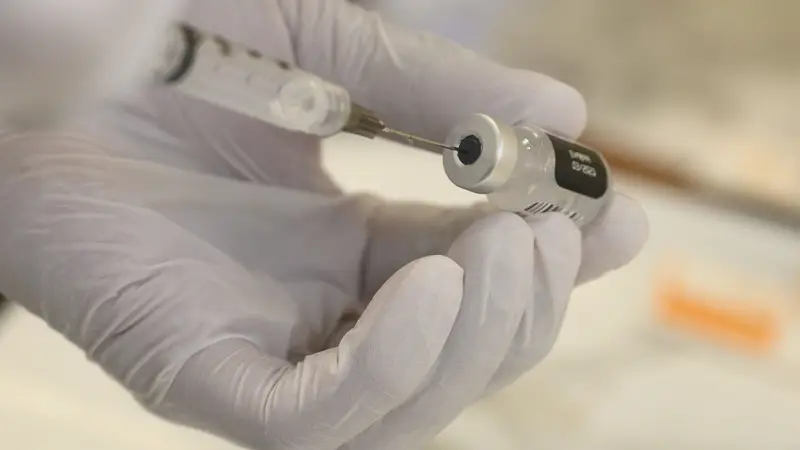In the ongoing effort to understand the long-term implications of the COVID-19 pandemic, a groundbreaking multinational study has analyzed data from over 230 million people across 20 global sites. This comprehensive study explores the relationship between SARS-CoV-2 infection, COVID-19 vaccinations, and Guillain-Barré Syndrome (GBS), a rare but serious neurological condition. The findings provide valuable insights into vaccine safety and emphasize the importance of continuous monitoring to ensure public confidence and inform health decisions.
What is Guillain-Barré Syndrome?
Guillain-Barré Syndrome is a neurological disorder where the body’s immune system mistakenly attacks its own nerve cells. It is a rare condition, with an annual incidence of one to four cases per 100,000 people worldwide. GBS can cause progressive limb weakness and, in severe cases, lead to paralysis. Although the condition is extremely rare, it can be life-threatening and requires immediate medical intervention.
The exact cause of GBS remains unclear, but it has been linked to various infections, including bacterial (like Campylobacter jejuni), viral (like Zika virus and influenza), and now, SARS-CoV-2, the virus responsible for COVID-19. Researchers have also observed a connection between GBS and some vaccines, which has heightened concerns about vaccine safety.
The Study and Its Scope
The study in question utilized advanced epidemiological methods to analyze health care data from 20 research sites across multiple continents. These sites were part of the Global Vaccine Data Network (GVDN), a collaborative initiative that brings together research institutions and policymakers from around the world to monitor vaccine safety.
The study’s global scope was impressive, with sites in North America, Europe, Africa, Asia, and Oceania, including countries like Ethiopia, Ghana, Kenya, Canada, Australia, Spain, South Korea, and the United Kingdom. The inclusion of both low- and high-income regions enriched the study’s findings, providing a well-rounded view of vaccine safety in diverse populations.
Key Findings: The Risk of GBS Following SARS-CoV-2 Infection
One of the most striking findings from the study was the significantly higher risk of developing GBS following SARS-CoV-2 infection. People infected with the virus were found to be three times more likely to develop GBS within six weeks of infection compared to individuals infected with other viruses or bacteria. This suggests that SARS-CoV-2 increases the risk of GBS, reinforcing the severity of the neurological complications linked to COVID-19.
The heightened risk of GBS following SARS-CoV-2 infection highlights the importance of taking preventive measures against the virus. Although GBS remains a rare outcome, the study emphasizes that the neurological risks posed by COVID-19 itself far outweigh those linked to vaccination.
Vaccine Safety: Adenoviral Vector Vaccines vs. mRNA Vaccines
In addition to examining the risks associated with SARS-CoV-2 infection, the study also compared the likelihood of developing GBS following different types of COVID-19 vaccines. The researchers found that adenoviral vector vaccines—such as the AstraZeneca and Janssen/Johnson & Johnson vaccines—were associated with a slight increase in the risk of GBS. However, no increased risk was observed with mRNA vaccines (Pfizer-BioNTech and Moderna) or inactivated vaccines (Coronavac/Sinovac).
This distinction is critical in understanding the relative risks of vaccination. Adenoviral vector vaccines, which use a modified virus to deliver genetic material and trigger an immune response, have been linked to rare side effects, including blood clotting disorders and GBS. However, these risks remain extremely low compared to the benefits of vaccination, particularly when considering the much higher risk of severe outcomes, including neurological complications, from a COVID-19 infection.
Reaffirming the Safety of mRNA Vaccines
The study’s findings underscore the safety of mRNA vaccines, such as the Pfizer-BioNTech and Moderna vaccines. These vaccines, which use messenger RNA to instruct cells to produce a protein similar to the spike protein of SARS-CoV-2, do not appear to increase the risk of GBS. In fact, the study suggests that the neurological risks associated with these vaccines are minimal and comparable to the risks seen with other common vaccines.
Dr. Jeff Kwong, senior author of the study, emphasized this point, saying, “If you are concerned about the risk of rare but serious side effects of vaccines such as GBS, you should know that receiving an mRNA COVID-19 vaccine does not appear to increase your risk, but infection with the virus does.”
The Importance of Continuous Vaccine Safety Monitoring
This large-scale study reaffirms what scientists have long known: the risks associated with COVID-19 infection are far greater than the risks posed by the vaccines. Dr. Sharifa Nasreen, Assistant Professor at SUNY Downstate Health Sciences University, noted, “Understanding the relative risks of vaccination and infection is critical. This study reinforces that while certain vaccines may carry small risks, SARS-CoV-2 infection itself presents a much greater threat to neurological health.”
The research highlights that vaccine safety is not a static issue. As new variants of the virus emerge and more people get vaccinated, it’s essential that the global community remains vigilant and continues to monitor vaccine safety. This ongoing research is vital for maintaining public trust in vaccination programs and ensuring that health decisions are made based on the most up-to-date scientific evidence.
Dr. Helen Petousis-Harris, GVDN Co-Director, emphasized the global commitment to vaccine safety research, saying, “Vaccine safety is continuously studied and evaluated. The global research community remains committed to ensuring public confidence through ongoing safety monitoring and evidence-based guidance.”
The Bigger Picture: Global Vaccine Safety and Public Health
The GVDN, which includes collaborations with leading research institutions and vaccine organizations across six continents, is at the forefront of global efforts to ensure the safety and effectiveness of vaccines. This study, with its large and diverse population, is a testament to the importance of multinational collaboration in advancing our understanding of vaccine safety.
The findings from this study should serve as a reminder of the critical role vaccines play in public health. Not only do vaccines protect individuals from severe illness and death, but they also reduce the risk of rare complications such as GBS. As the world continues to navigate the COVID-19 pandemic, the need for accurate, evidence-based information about vaccine safety has never been more important.
Dr. Steve Black, GVDN Co-Director, reinforced this message, saying, “GVDN has long been committed to rigorous and transparent vaccine safety research. The size and diversity of this study population, attained through multinational collaboration, is a testament to this. Our findings highlight the importance of continuous monitoring and real-world data to guide public health decisions.”
Conclusion: A Balance Between Risk and Benefit
As we continue to combat the global COVID-19 pandemic, this new study offers crucial insights into the relationship between SARS-CoV-2, vaccines, and Guillain-Barré Syndrome. While there are rare risks associated with certain vaccines, such as the adenoviral vector vaccines, these risks pale in comparison to the life-threatening risks posed by COVID-19 infection itself.
The research reinforces the importance of vaccination in preventing severe disease, including neurological complications like GBS. It also emphasizes the need for ongoing, transparent monitoring of vaccine safety, ensuring that public health policies are guided by the best available scientific evidence.
Ultimately, the findings of this multinational study provide a clear message: while no medical intervention is without risk, the benefits of COVID-19 vaccination far outweigh the potential dangers of infection. As new variants and challenges arise, the global scientific community remains committed to protecting public health through vigilant, evidence-based research.
Reference: Sharifa Nasreen et al, Risk of Guillain-Barré syndrome after COVID-19 vaccination or SARS-CoV-2 infection: A multinational self-controlled case series study, Vaccine (2025). DOI: 10.1016/j.vaccine.2025.127291






